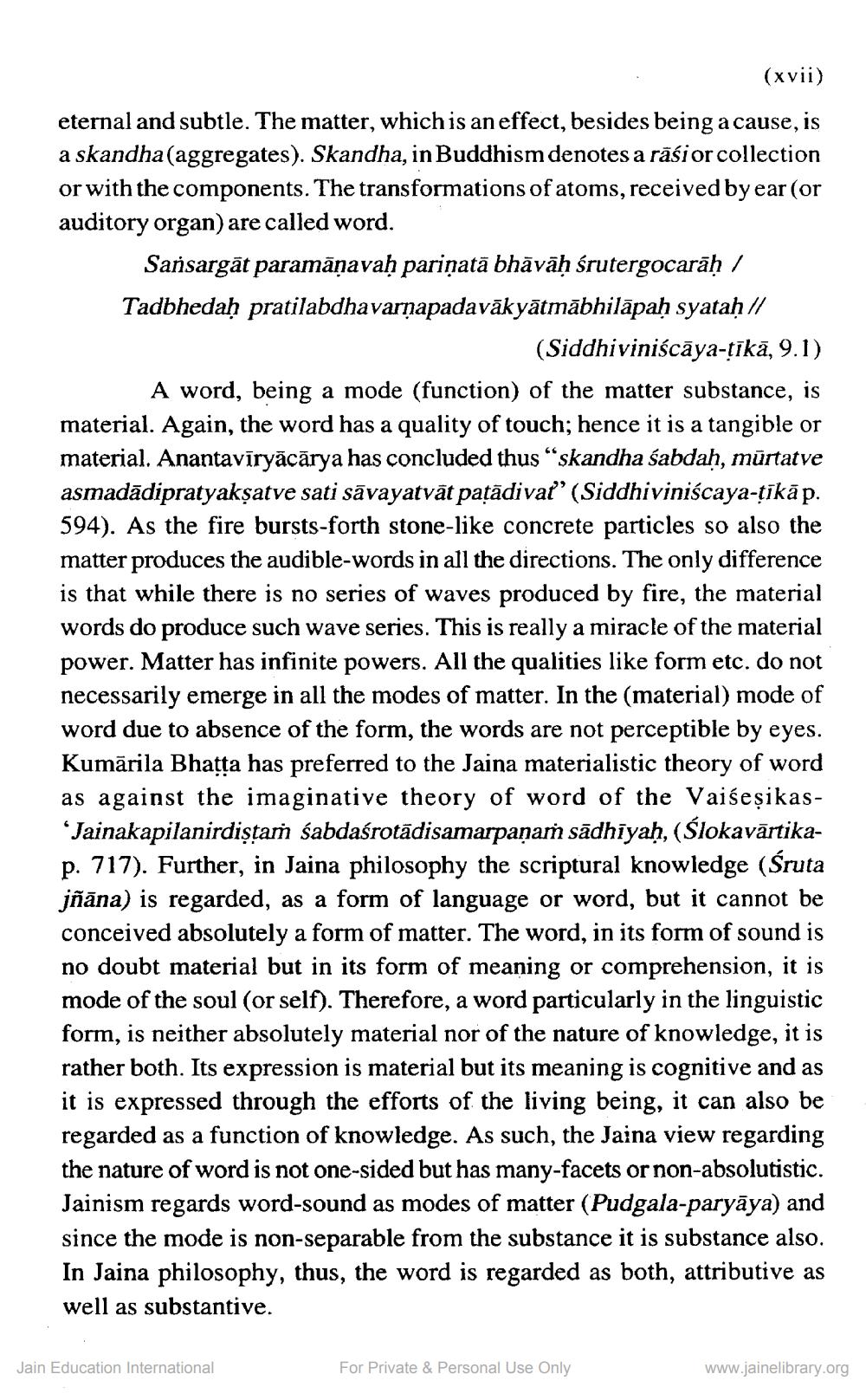________________
(xvii)
eternal and subtle. The matter, which is an effect, besides being a cause, is a skandha(aggregates). Skandha, in Buddhism denotes a rāśior collection or with the components. The transformations of atoms, received by ear (or auditory organ) are called word.
Sansargāt paramāṇavaḥ pariņatā bhāvāḥ śrutergocarāḥ / Tadbhedaḥ pratilabdhavarnapadavākyātmābhilāpaḥ syataḥ//
(Siddhiviniścāya-tīkā, 9.1) A word, being a mode (function) of the matter substance, is material. Again, the word has a quality of touch; hence it is a tangible or material. Anantavīryācārya has concluded thus “skandha sabdah, mūrtatve asmadādipratyakşatve sati sāvayatvāt pațādivat (Siddhiviniscaya-tikāp. 594). As the fire bursts-forth stone-like concrete particles so also the matter produces the audible-words in all the directions. The only difference is that while there is no series of waves produced by fire, the material words do produce such wave series. This is really a miracle of the material power. Matter has infinite powers. All the qualities like form etc. do not necessarily emerge in all the modes of matter. In the (material) mode of word due to absence of the form, the words are not perceptible by eyes. Kumārila Bhatta has preferred to the Jaina materialistic theory of word as against the imaginative theory of word of the Vaiśeșikas‘Jainakapilanirdistał śabdaśrotādisamarpaņas sādhiyaḥ, (ślokavārtikap. 717). Further, in Jaina philosophy the scriptural knowledge (Śruta jñāna) is regarded, as a form of language or word, but it cannot be conceived absolutely a form of matter. The word, in its form of sound is no doubt material but in its form of meaning or comprehension, it is mode of the soul (or self). Therefore, a word particularly in the linguistic form, is neither absolutely material nor of the nature of knowledge, it is rather both. Its expression is material but its meaning is cognitive and as it is expressed through the efforts of the living being, it can also be regarded as a function of knowledge. As such, the Jaina view regarding the nature of word is not one-sided but has many-facets or non-absolutistic. Jainism regards word-sound as modes of matter (Pudgala-paryāya) and since the mode is non-separable from the substance it is substance also. In Jaina philosophy, thus, the word is regarded as both, attributive as well as substantive.
Jain Education International
For Private & Personal Use Only
www.jainelibrary.org




